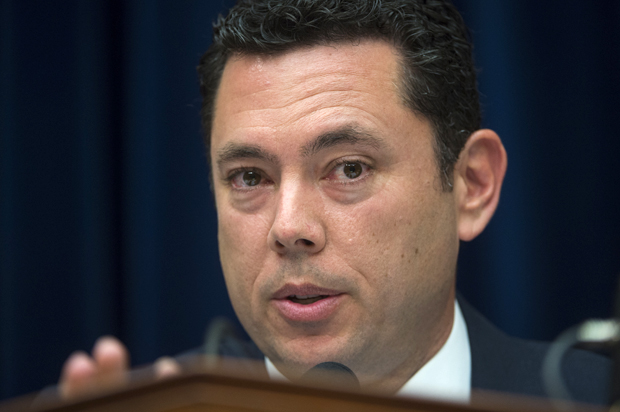As President Barack Obama signed a bill on Friday authorizing $170 million to address the problem of the lead being found in drinking water in Flint, Michigan, Republicans in the House quietly closed a nearly yearlong investigation of the disaster — without receiving crucial information from Republican Gov. Rick Snyder.
Late on Friday afternoon Utah Republican Jason Chaffetz, chairman of the House Oversight and Government Reform Committee, sent a pair of letters announcing the end of his investigation. His letters offered no new information and essentially summarized what had already revealed about the crisis during several high-profile hearings earlier this year.
Over a year ago Flint’s mayor, Karen Weaver, declared a state of emergency because of her city’s supply of poisonous water and still it remains undrinkable. Flint’s water woes date from April 2014, when a state-appointed emergency manager switched the city’s water source from Detroit’s water system to the Flint River in order to save money.
But on Friday just hours after the top Democrat on the House Oversight Committee, Maryland’s Rep. Elijah Cummings, called for a subpoena of the Republican governor of Michigan responsible for appointing the emergency manager who had switched Flint’s water supply, Chaffetz announced he was ending the congressional investigation. Chaffetz said he had concluded that “a series of failures at all levels of government caused, and then exacerbated, the water crisis.”
In his letter to the Republican chairmen of the House Energy and Commerce Committee and the House Appropriations Committee, Chaffetz said, “The committee found significant problems at Michigan’s Department of Environmental Quality and unacceptable delays in the Environmental Protection Agency’s response to the crisis.”
Arguing that “the federal regulatory framework is so outdated that it sets up states to fail,” Chaffetz called for EPA funds designated for use for studying and combatting climate change be redirected to water pipe improvement projects across the nation. Chaffetz also called for removing the requirement that federally funded drinking-water construction projects pay prevailing wages under the Davis Bacon Act.
“Congress put EPA in this role as a backstop in the event that a state or territory failed to provide safe drinking water,” Chaffetz wrote. “In this case, however, even the federal safeguard failed Flint’s residents.”
Democrats, however, have pushed back on the Committee’s rushed assessment, criticizing Chaffetz’s sudden lack of interest in thorough investigations. (Under Chaffetz’ chairmanship, the Republican-led House Oversight Committee has chased the Planned Parenthood hoax, sought to impeach the IRS commissioner over the agency’s scrutiny of Tea Party-affiliated groups that sought tax-exempt status and vowed to continue investigating Hillary Clinton over her use of a private email server even after the election.)
Cummings refused to sign Chaffetz’s letters closing the Flint investigation and a spokeswoman for the committee’s Democratic staff noted that Gov. Synder had “defied” requests to provide documents for the investigation.
In his Friday letter, Cummings argued that Snyder had obstructed the investigation by not providing key documents that would explain when he learned about the severity of the crisis. “Requiring Governor Snyder to finally comply with the committee’s request will allow us to complete our investigation and offer concrete findings and recommendations to help prevent a catastrophe like this from happening again,” Cummings wrote in response to Chaffetz’s letter. “In contrast, allowing Governor Snyder to flout the committee’s authority will deny the people of Flint the answers they deserve.”
Cummings also claimed that 15 past and current members of Snyder’s administration refused requests to sit for interviews. “They have repeatedly delayed responding to the committee, and they have treated the committee’s requests as an afterthought that they respond to only after addressing other inquiries that they view as higher priorities,” Cummings wrote.
With congressional Republicans concluding that oversight is no longer needed, Snyder is unlikely to release those documents.
For his part, the governor welcomed news that congressional Republicans have given up on their investigation of the Flint water crisis and brushed Cummings’ letter aside, calling it “partisan political attacks from out-of-state politicians.”
Anna Heaton, a Snyder spokeswoman, said on Friday, “Gov. Snyder appreciates the committee’s work and for referring recommendations for policy changes to the appropriate committees. He is a strong proponent of revising the federal Lead and Copper Rule and has been working with Marc Edwards of Virginia Tech to see those reforms through the legislative process.”

